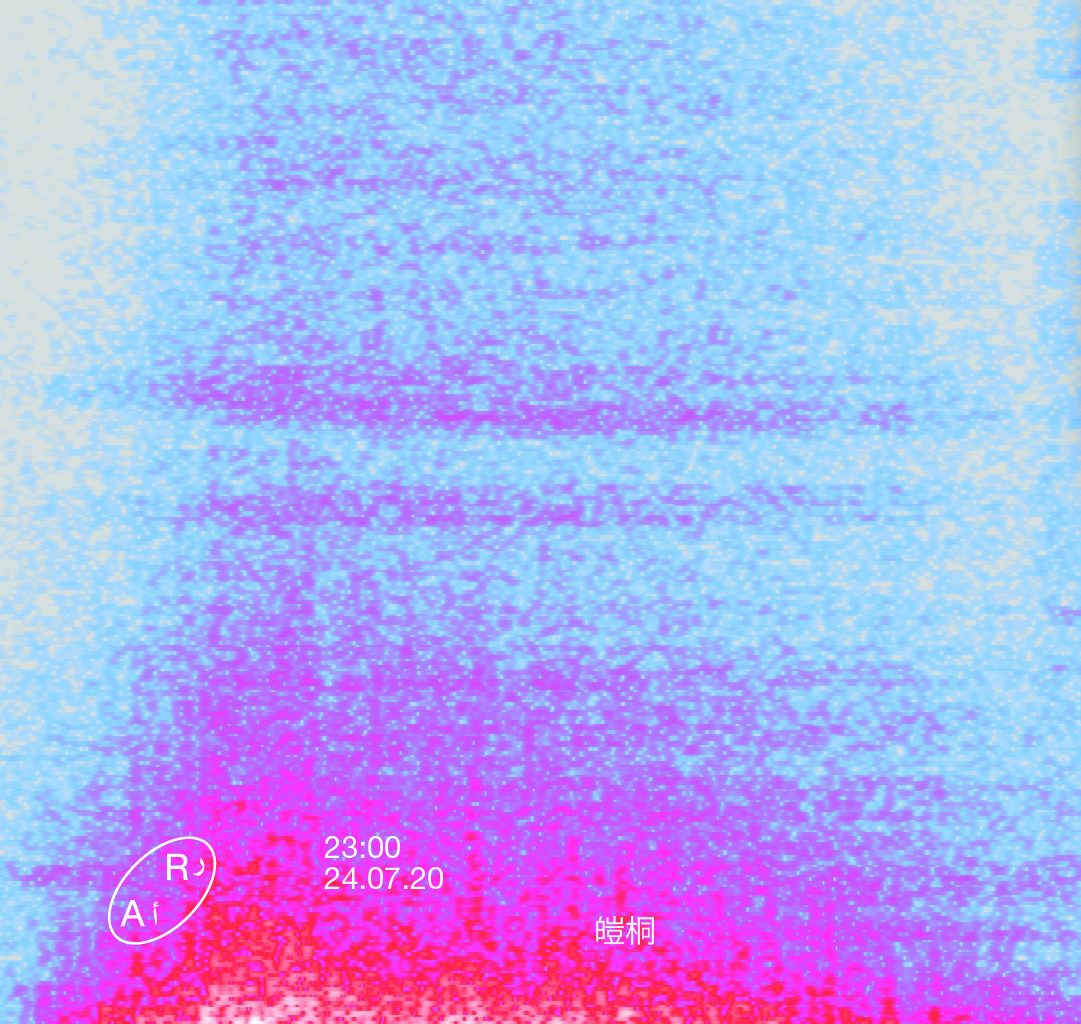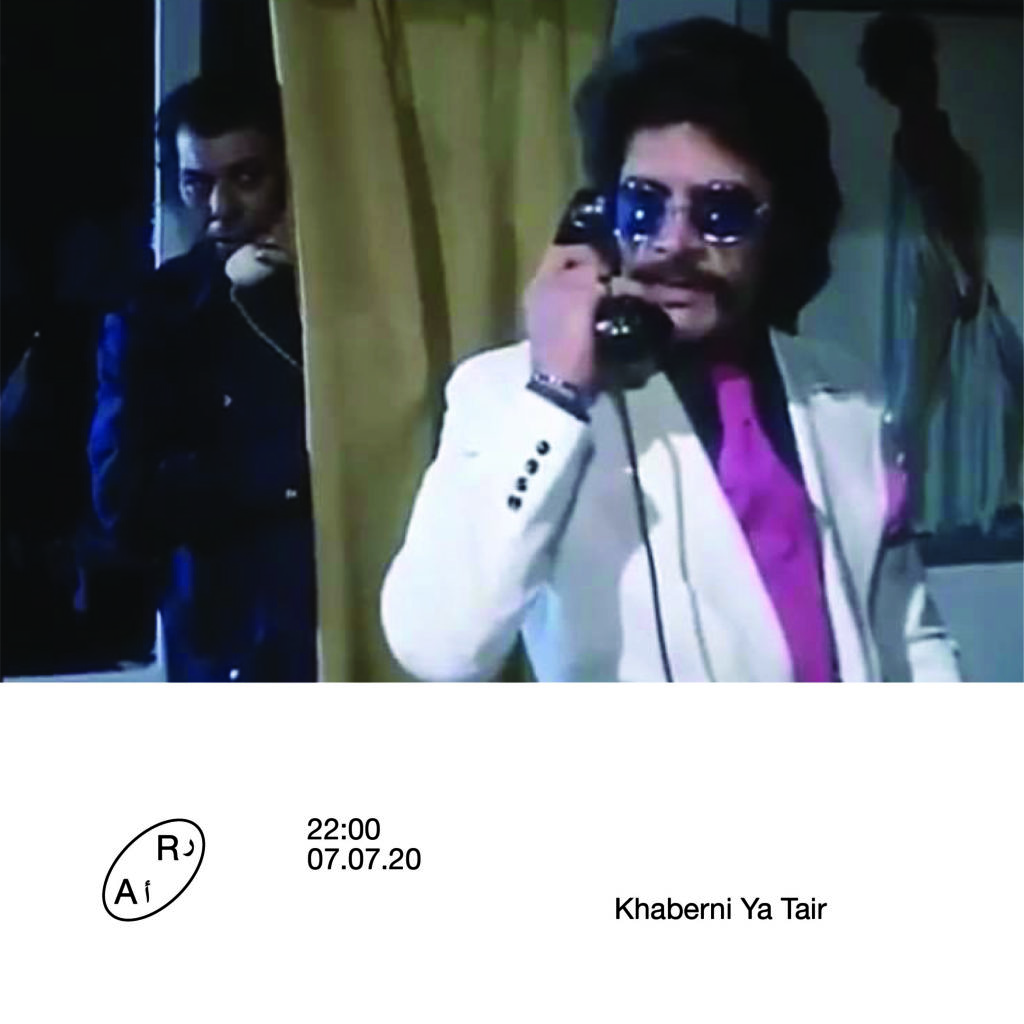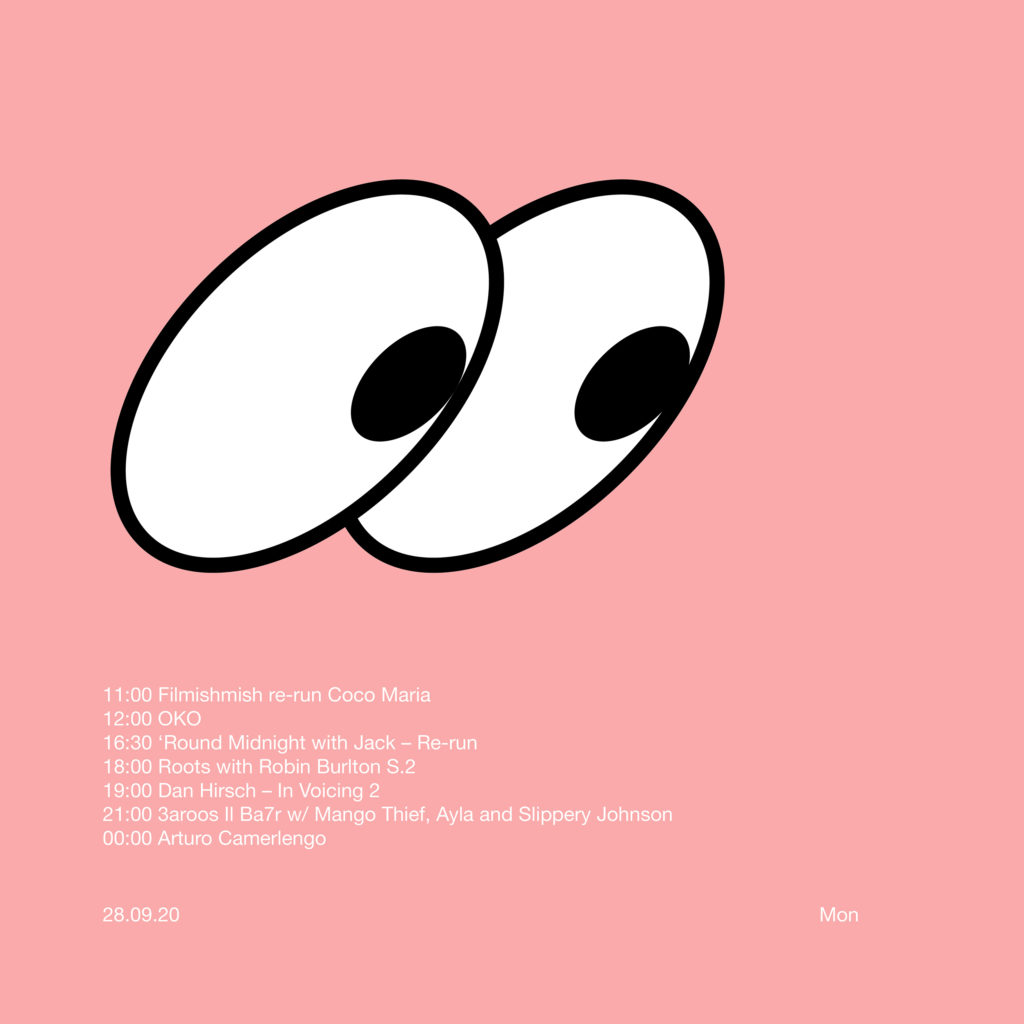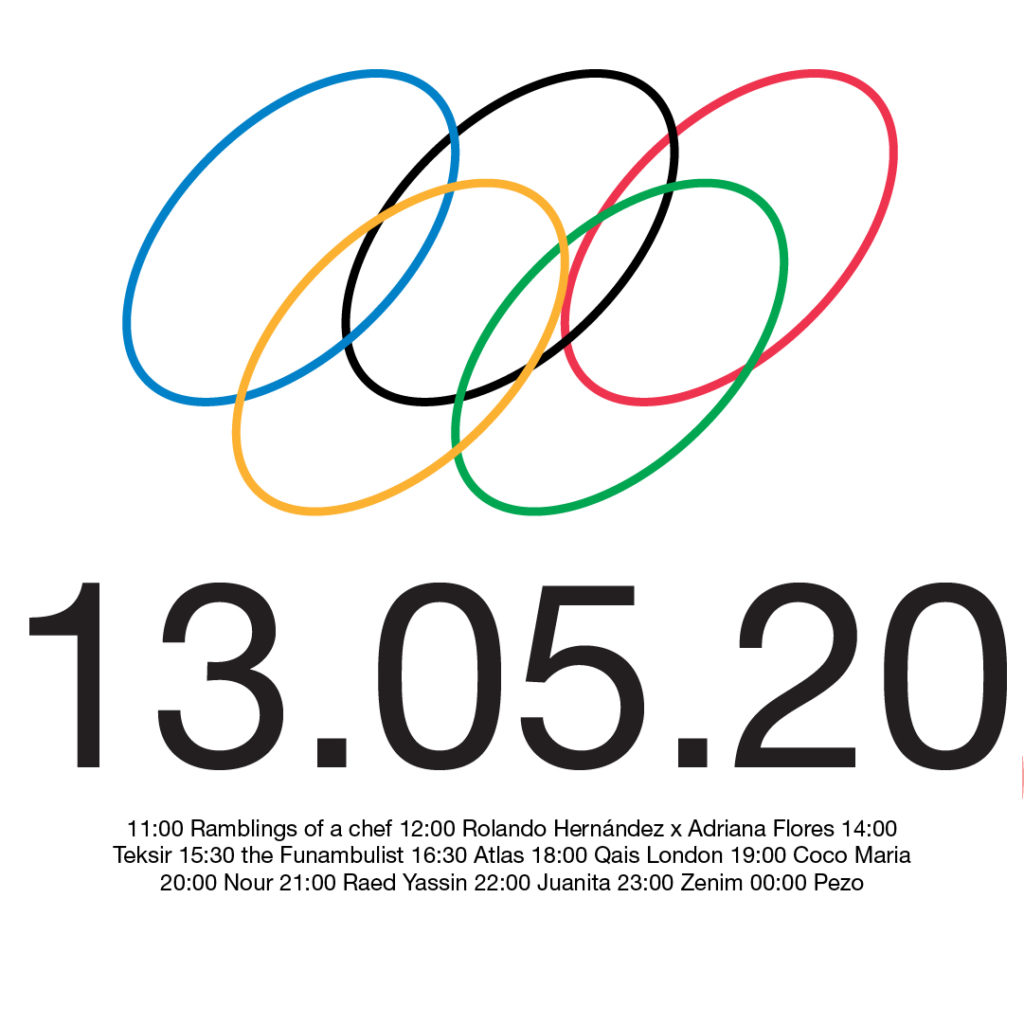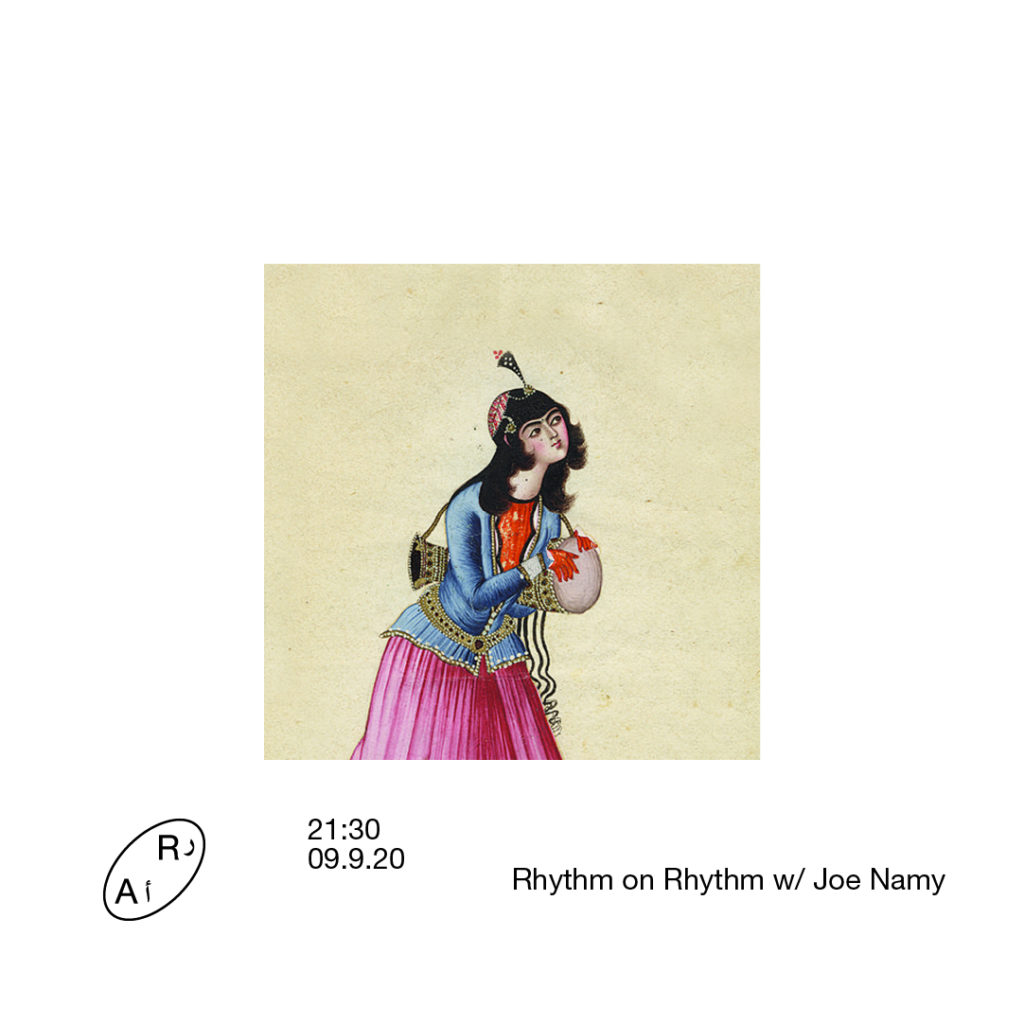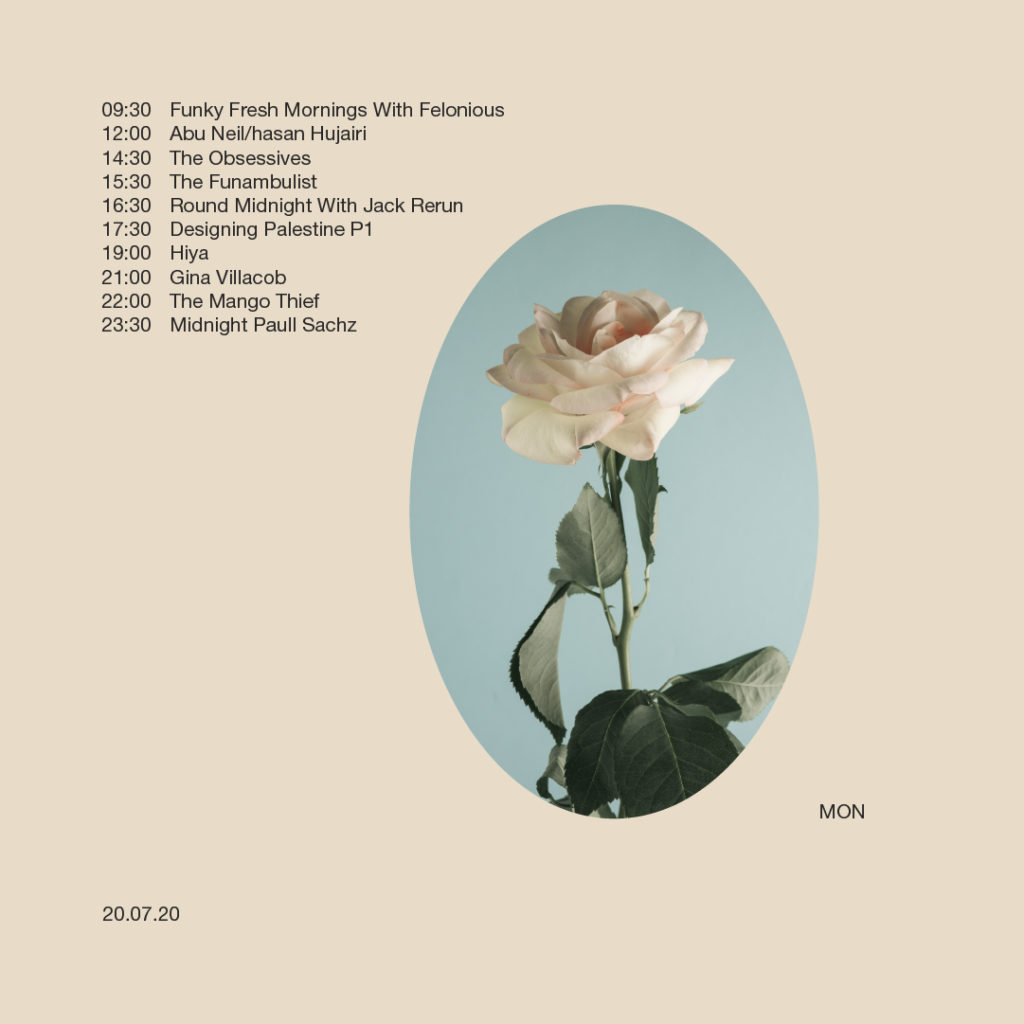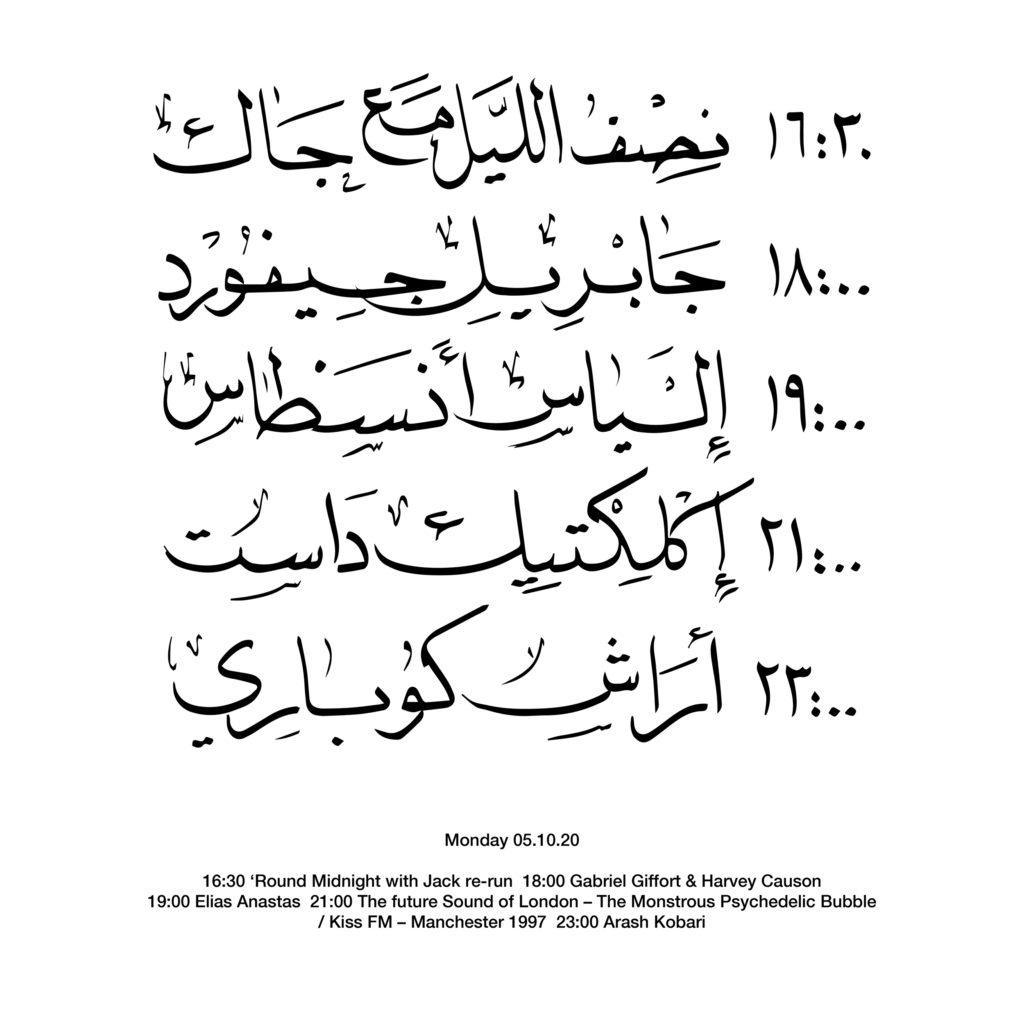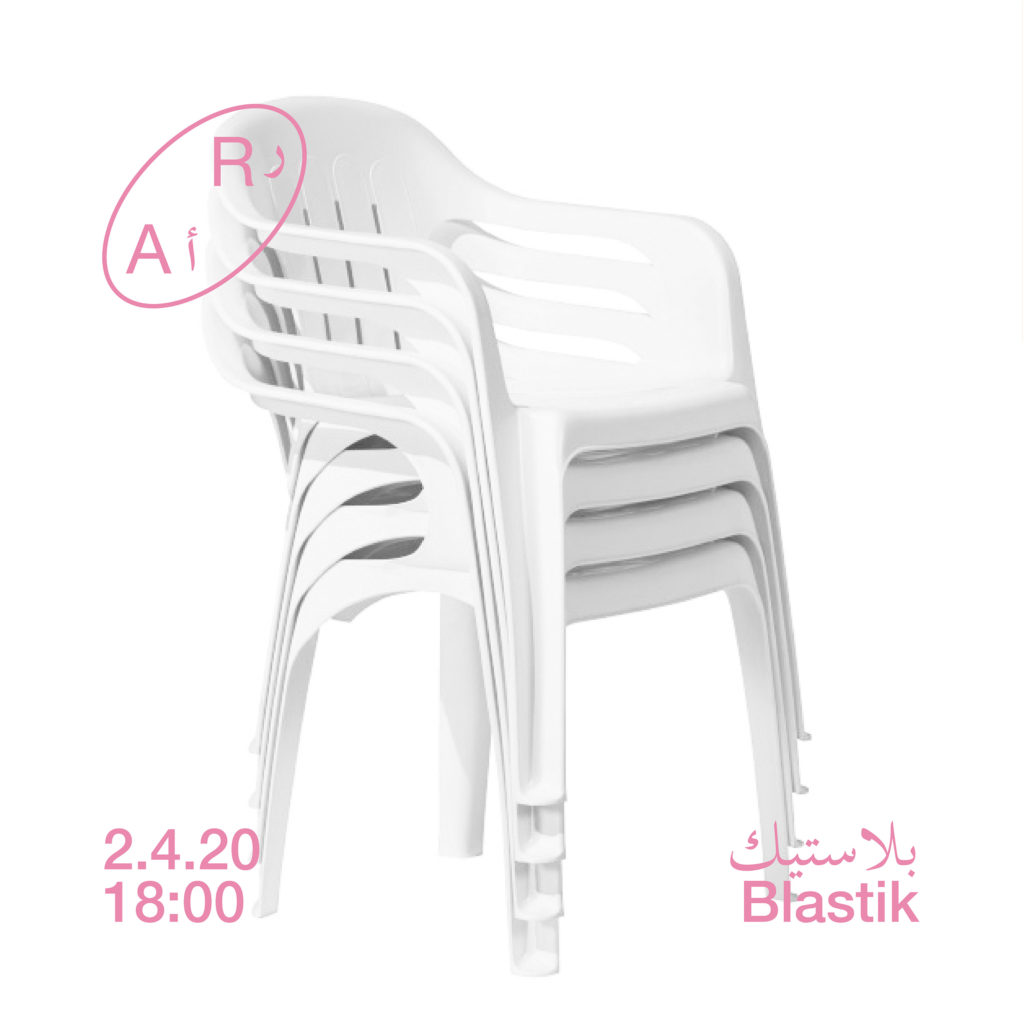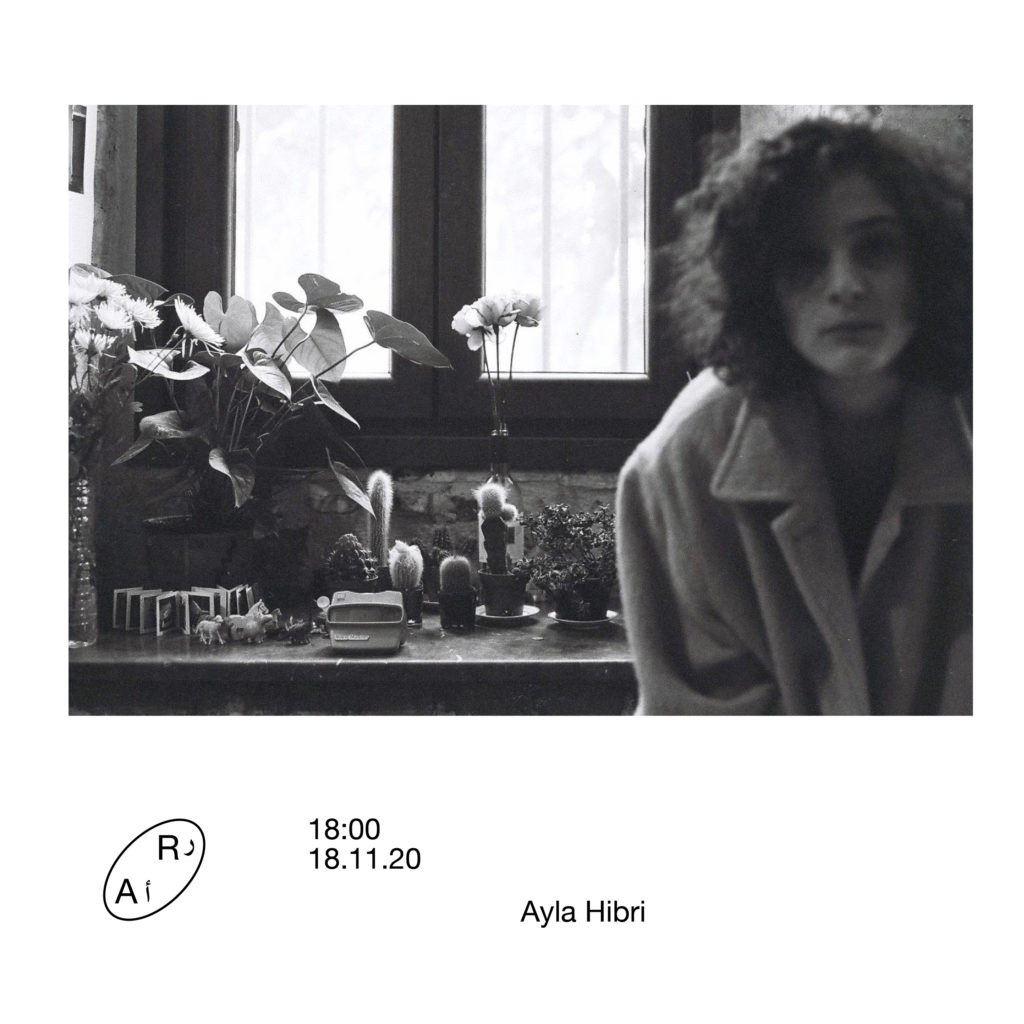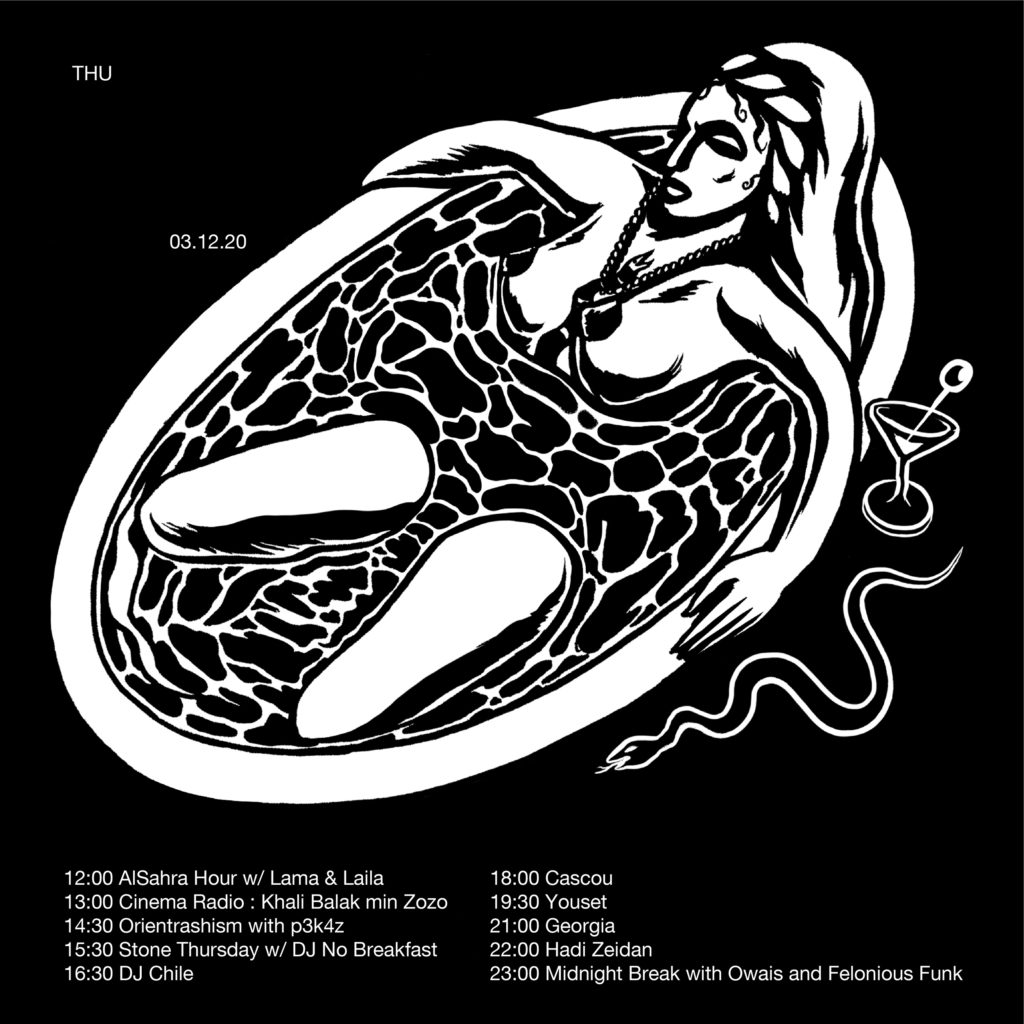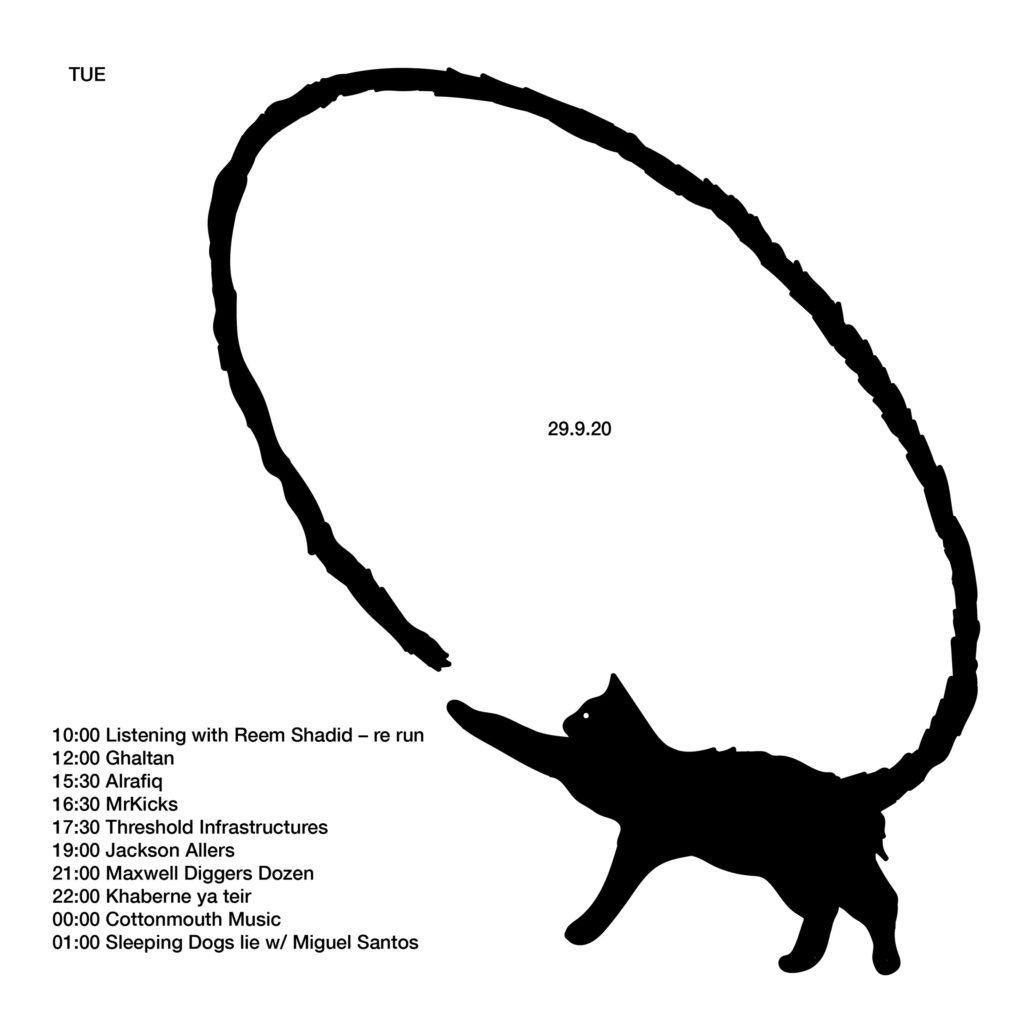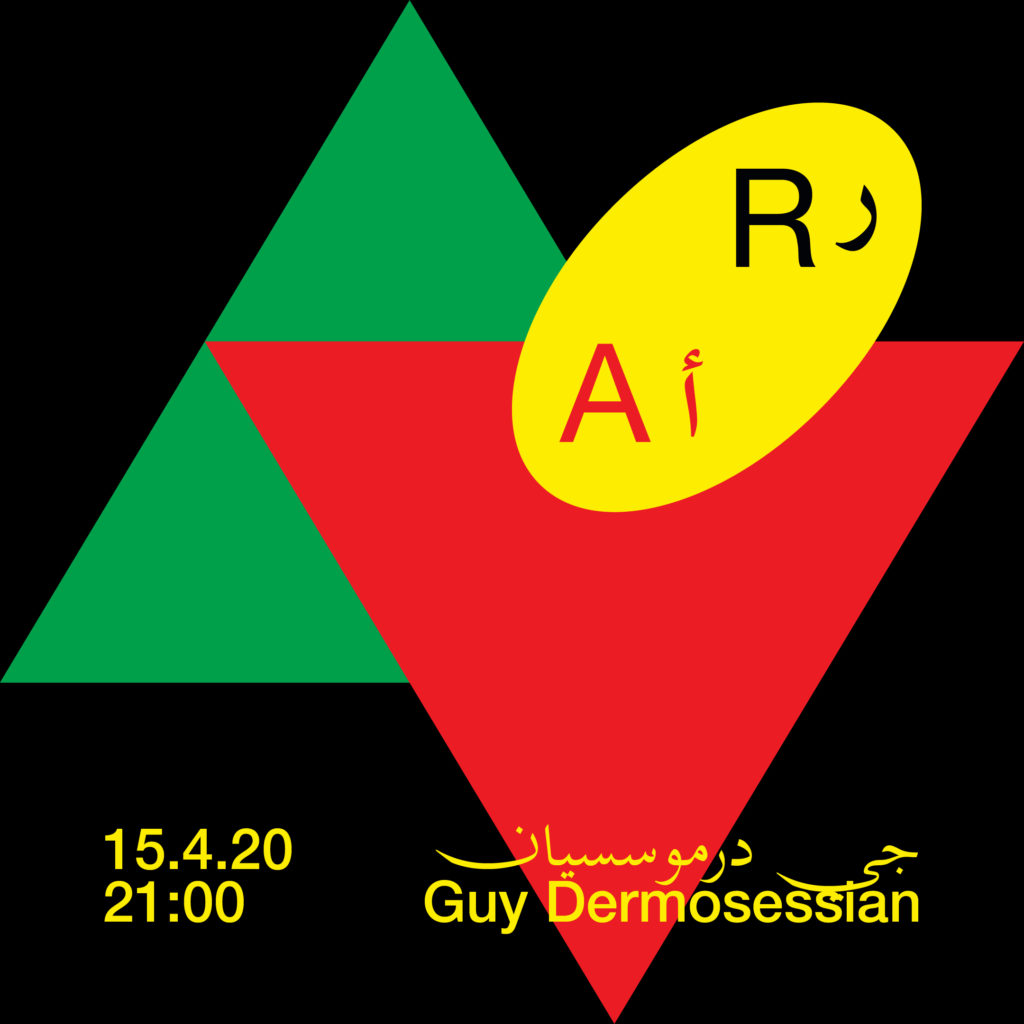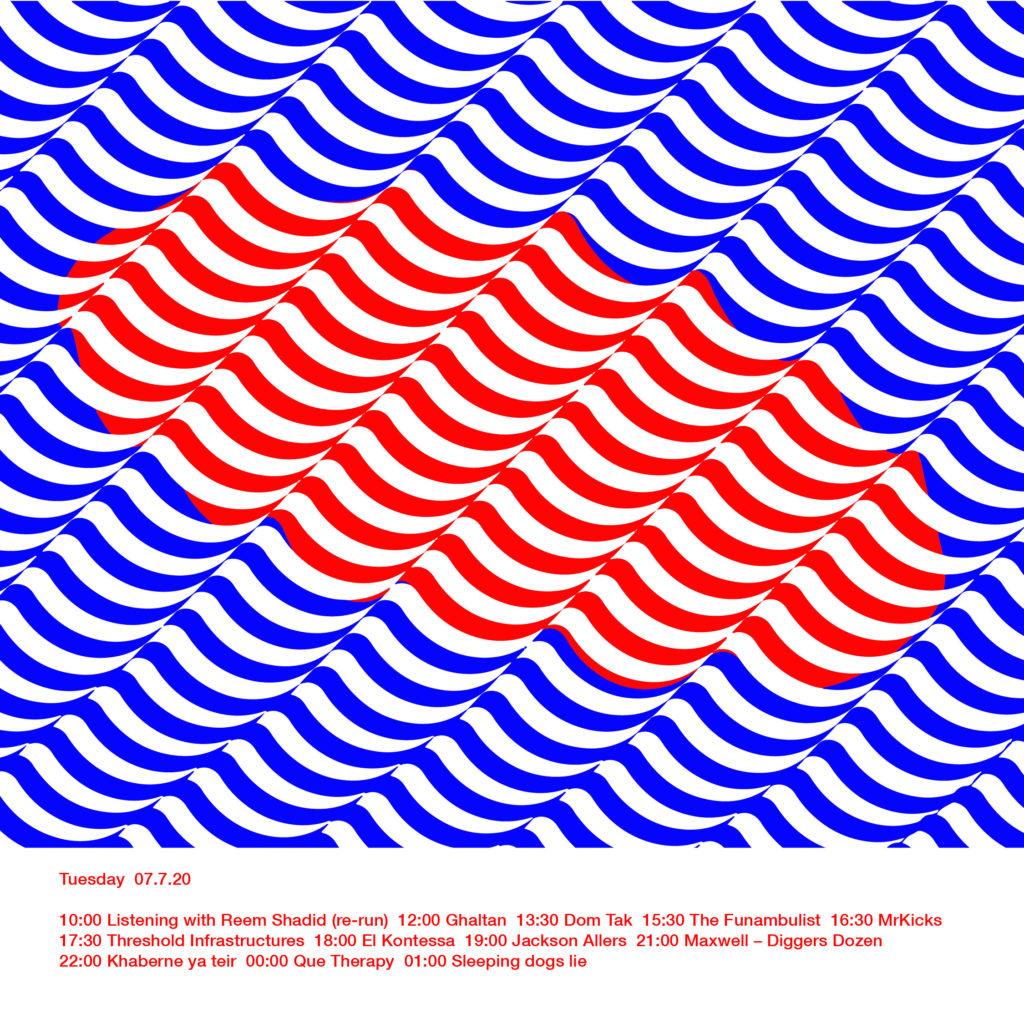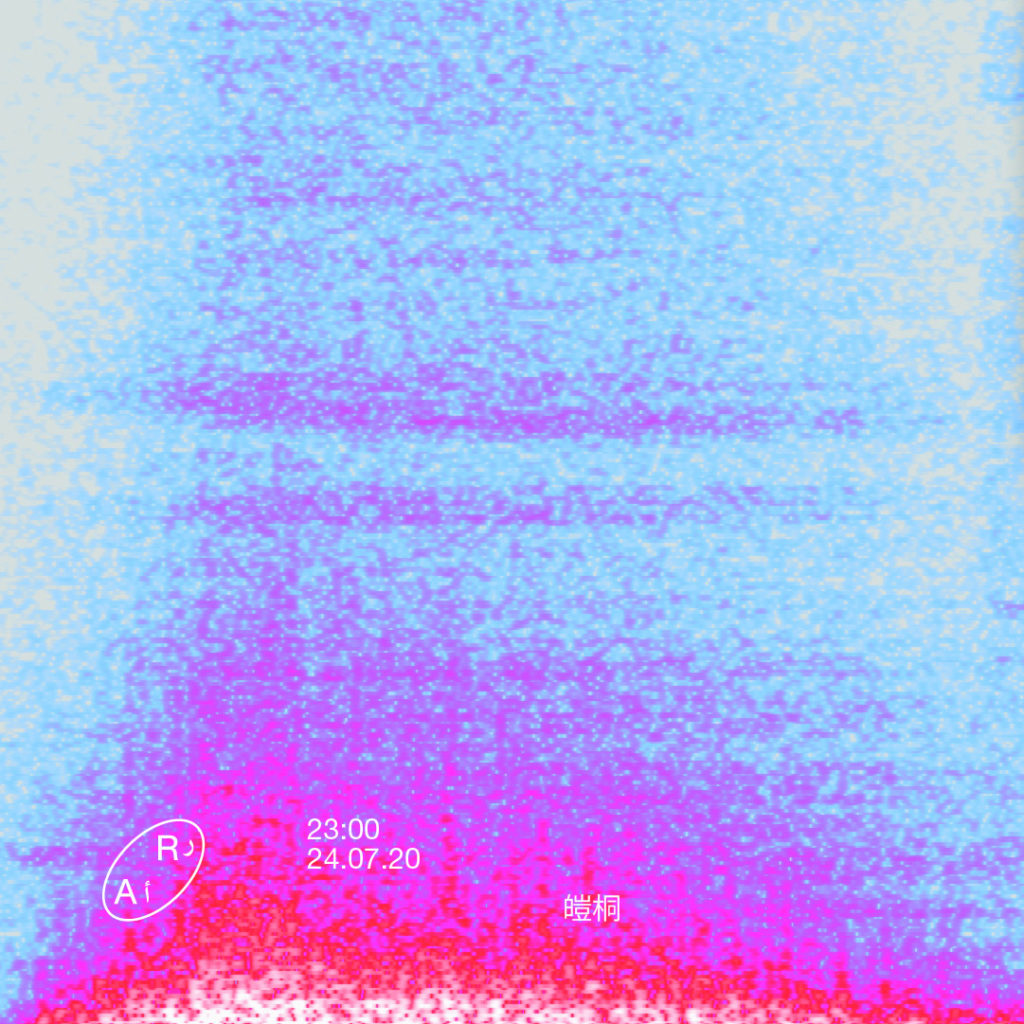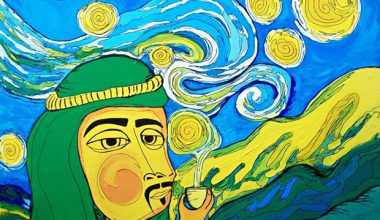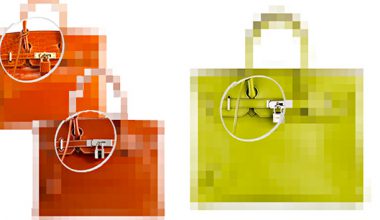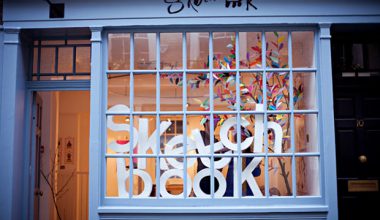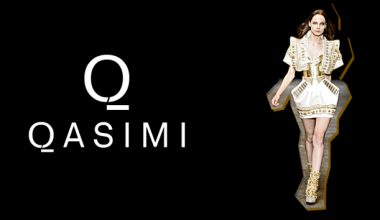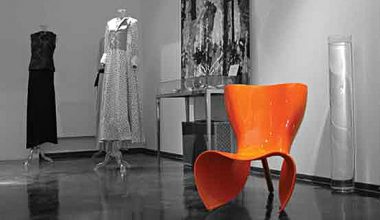Words: Jood AlThukair
Images: Radio Alhara
Among the many spaces that bloomed during quarantine, we see Radio Alhara, from Palestine, at the top of the list, making them a sought-after platform that educates, curates, and indulges its audience in daily live-streamed programs. First established in Bethlehem and Ramallah (Palestine), the project has ascended towards bringing people together in times when physical proximity was not a choice. Radio Alhara encourages diluting the barriers of time and space, its community constantly discussing the music and the words by engaging in the retro-digital chatbox on the left-hand side of their capsulized cyberpunk aesthetic website.
Some actively listening, others breaking into sudden fits of laughter, Radio Alhara is a fun bunch to meet amid lockdown. Despite being miles apart, our screens merged us into a space that discusses music, the internet, and more. The sun had just set in Riyadh where I am, a faint Maghrib call-to-prayer sneaking into our online conversation. I sit with the founders of Radio Alhara—Yousef and Elias Anastas, Yazan Khalili, Saeed Abu Jaber, and Mothanna Hussein—and remember the shared collective experience of what makes an Arab in the age of the internet. Together, we talk about culture, social media, and being stuck in quarantine.
Jood Al Thukhair (JT): Where did Radio Alhara come from? Where are its founders now and what importance does it serve to the people in the Arab World and beyond?
Elias Anastas (EA): We started from Ramallah (Palestine), Amman (Jordan), and Bethlehem (Palestine), and this was our way to maintain communication between our friends and each other during quarantine. We started inviting other friends, and those friends’ friends, which makes us a community that is constantly and consistently growing. One of the things we like to say is that the Radio isn’t defined in a specific framework, rather something that is malleable and transformative. I think the way it functioned during the last year was between 5 friends who have worked together on different projects. Yousef and I are architects and designers, Saeed and Mothanna are graphic designers in Amman, and Yazan is an architect and visual artist in Amsterdam.
JT: What inspired you to create the platform? Out of all the times it could have been founded, why was quarantine the jumping off point?
Yazan Khalili (YK): [laughs] I think we were introduced to some radio stations all over the world, and we thought, huh, Radio Alhara from Palestine! And then it happened, just like magic.
Saeed Abu Jaber (SAJ): And it all came together very quickly! I think it’s because we were all at home and in lockdown, we would contact our friends and they’d send in their mixes, which slowly built a program. The best part of it was that it was spontaneous.
YK: We didn’t need to prove anything to anyone. We’ve been working together long enough to connect on a project like Radio Alhara. We were waiting for a moment like this.
JT: How many are your team members and who’s in charge of what?
EA: There are 5 founders, but we always say that the 150+ contributors are what formed this Radio. We founded it and are doing the work on a daily basis, but at the end of the day, this wouldn’t have happened without the engagement of our community. The richness of it is the proper collective initiative in all its proportions and dimensions.
JT: In your talk at Call for Curators with Ilaria Conti, you’ve mentioned that Radio Alhara was born very spontaneously—just a two-line text on Facebook between Yazan and Yousef. What happened afterwards? How long did it take for you to launch?
SAJ: We took one day.
YK: Even less.
SAJ: That’s the thing, there wasn’t a plan. It was more like, let’s make a radio station and set up an Instagram account. It didn’t take long.
EA: I was looking at the posters of the first week of the Radio, and most of us had a daily show. Saeed played for a month everyday at 4:30 PM, Mothanna had his Atlas show everyday at 12:00 PM, but we also had friends who would come and play, so it was mostly us trying to maintain a connection while being stuck at home. One of the things that helped the Radio grow and attain [the audience] it has today is that we all have friends connected to the music scene, as well as people invested in the cultural sphere, so I think the richness of the Radio is that it involves all kinds of people.
JT: I always see you posting a daily schedule of your programs on Instagram, and for someone with a platform myself (I’ve been running Sumou Mag for about 3 years), scheduling and posting on a daily basis—more so an hourly basis in your case—can get overwhelming. How do you manage to pull that off effortlessly? Do you face any burnout?
SAJ: No, not really. There’s more than 5 of us who manage the account, so when Yousef doesn’t have the time to program, there’s Ibrahim, there’s Yazan, so we get to jump around. Sometimes Elias can’t do the posts, so either Mothanna or I get to do them. Everything is interchangeable. There’s a system to a certain extent, but not so much as fixed. There’s always going to be emails and Instagram messages we need to reply to, so it does take time in total, but not so much [where it’s overwhelming].
YK: Perhaps we were adjusting to the pandemic, especially that we started during quarantine. We’re trying to give the optimal amount of work to the Radio that we can provide to our community. We’re not branding something as much as we’re doing it for what it is: telling people about our program. We used to make daily posts with [our own] pictures, but if we feel that it’s getting tiring, we ask our people to send their images to turn them into posters. We’re flexible enough to accept change; if our community would like to see change, we’d give it to them.
JT: When it comes to building your daily programs, what guidelines do you follow for them to be aired? On what basis are they built?
SAJ: There’s not much of a basis. Ever since we began the Radio during the pandemic, we asked DJs to send us what they listened to at home. Most of the people who send us stuff will get played into the program. For the sake of continuity, we go back-and-forth to find when we could slip them in. We think of the Radio as a good flatmate, something you can have in the background all day without being too intrusive, especially that we’re all at home.
JT: When things get overwhelming, what do you do to unwind and feel inspired again?
EA: I think because we have constant contributions and people reaching out, there isn’t one day like the other. There’s always enthusiasm in seeing how things will come out. There are days where they’re full of music, and others where you’ll see some variation in regards to culture, etc. We have multiple directions, so this allows us to stay motivated.
JT: Describe your daily routine. How, as the founders of Radio Alhara, do you work everyday to put on a show? How many people are helping in keeping a consistent record of programs?
SAJ: We have residents who build programs, host shows, play music, and help us out with the technical stuff. We started with 26 residents in April, but they’ve reached 152 at the moment. We keep an empty space for off-resident programming and guests, but in general, we have at least 9 shows a day that are programmed into monthly slots for one of the residents. When there’s nothing to play, we pull things out from the Radio library, and sometimes, Yousef would live-interview someone. One of us would also randomly take control of the stream, like Mothanna would go in and play an hour from YouTube, and so it’s very fluid in that sense. However, there’s always more residents and continuous shows.
JT: Can people submit their own work or works they have previously come across? If not, how do you find new creatives? Do you have a directory of people to feature on your station?
SAJ: The cool part about the Radio is that it’s more of a community, so somebody comes and plays a few times as a guest, and then we’d be like, “Would you like to have a monthly show?” So they’d come in and then spread it to someone else. We have people who come in and go, “I have a really cool friend from Melbourne who’s a DJ and would love to submit a set or have a show.” We end up meeting so many people and expand our network in the process. Sometimes, we’d talk about featuring specific people, but in general, the people came through their mutual friends.
JT: So the Radio lineup is more communal and grows outward organically! Because of that, we see a mix of archives, music, podcasts, interviews, and other features on your station. How do you juggle these diverse media and make sure they’re consistent and cohesive?
EA: There isn’t proper curation, which puts us at ease. We don’t set things up to have a smooth fade-in and fade-out from different programs, but we have a sense of when to play those shows at which parts of the day. Some programs wouldn’t make sense in the morning, and vice versa.
JT: With the rise of technology, many have replaced the radio with other means. However, seeing Radio Alhara’s success, what’s one misconception that you would like to erase?
YK: Radio Alhara is an accumulation or connection between classical radio and social media, in a way that takes the structure of collective-listening and uses the abilities of social media to connect people together. It takes from both sides and creates a third, communal media, if you want to call it that. I think this kind of structure is inevitable in a time that revolves around the development of the media and the collective spaces online.
JT: Is Radio Alhara potentially a full-time job? Otherwise, what are your day jobs and how do you balance between the two?
SAJ: It’s not even half a part-time job [laughs]. We all have our jobs and are really busy, but everyone likes spending their time on Radio Alhara. It’s fun taking care of. Mothanna and I are running a design studio called Studio Turbo, Yazan is a Co-Chair in Photography at Bard New York’s MFA Program, and Yousef and Elias are running Local Industries (design and manufacturing network) and AAU Anastas (architecture office), but it’s fun. In fact, it was the only thing keeping us sane during lockdown. It was a blessing, because there was nothing to do.
JT: What are the redeeming moments that make all this worth it?
SAJ: All of it. What happened right now, what we’re currently playing on the Radio, the events that happened in the past. Everything.
EA: We also developed a network of friends from all over the world. We could go to Venezuela and know we have some friends there. It’s super nice to be connected with people from different backgrounds that share new formats of culture.
JT: You are nearing a full year since your launch. What are the things you’ve learned throughout? What are the things that keep you going?
SAJ: We’ve learned a whole lot! We’ve learned to run an online radio, but we also look forward to see how it’s going [to grow]. We used to say that if the day comes where we don’t feel Radio Alhara means anything to anyone, we’d just shut it down. We’ve spent so much time working on it, but it’s fun and there’s always something new. Sometimes, we’d get people we’ve always admired, and suddenly we feel like we’re an arm’s reach from getting to them.
JT: What’s next for Radio Alhara?
Radio Alhara: No specific plan, we will know as we go.
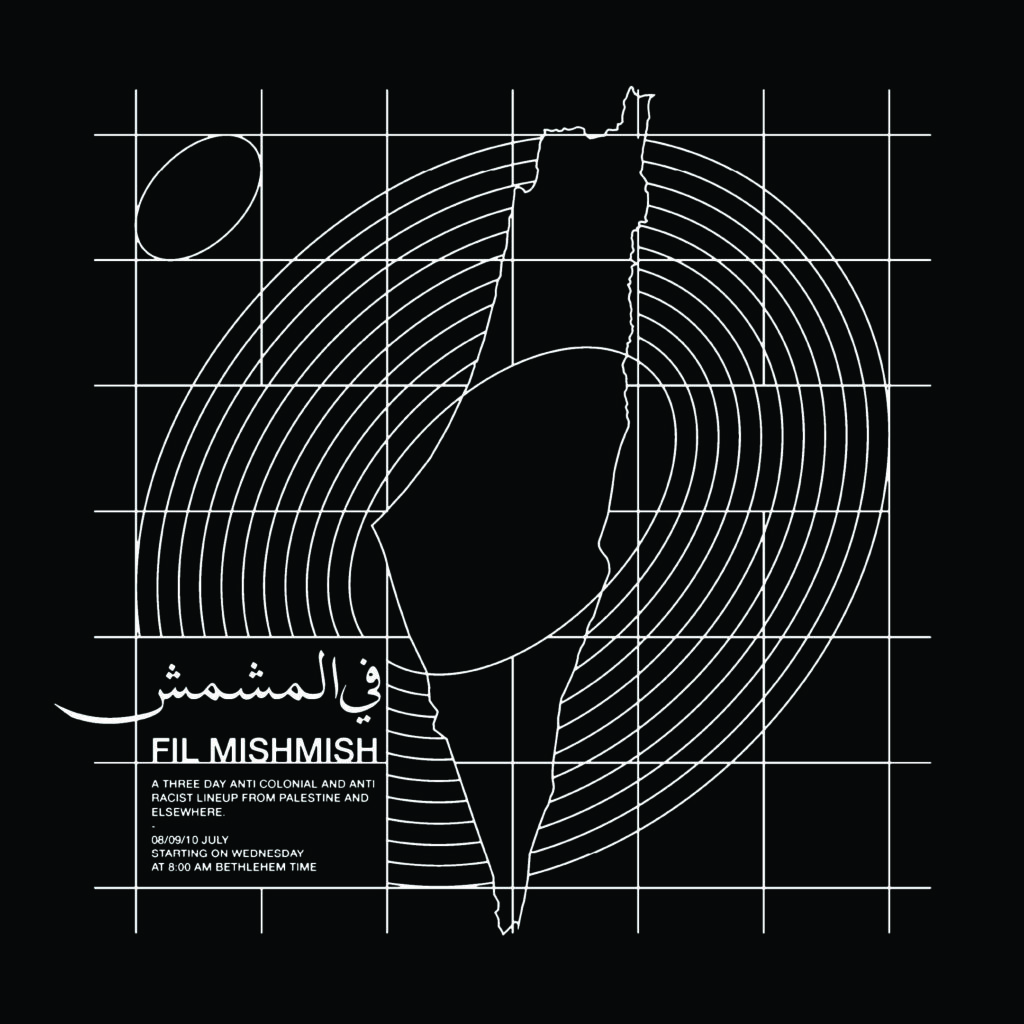
Radioalhara.net
www.instagram.com/radioalhara/

